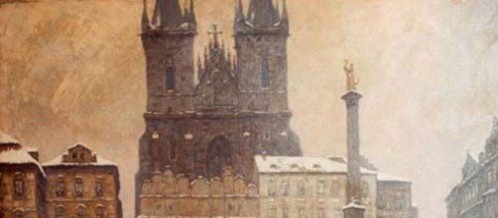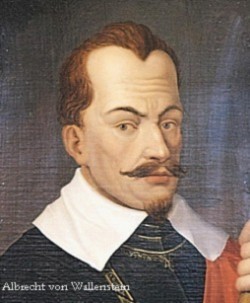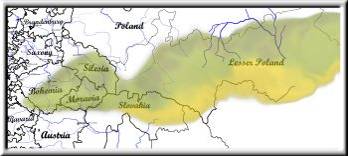
Fortunately, they were hungry—or James might have spent half an hour instead of three minutes making wisecracks about Lord and Lady Roth and the way they bid fair to make pikers out of any European aristocrats barring maybe the odd emperor here and there. He didn't even make one wisecrack about the food being kosher.
Of course, he might not have noticed anyway. But Melissa did, and after the meal was over she gave Morris a little smile.
"I see even you can bend a little. Smart move, if you ask me."
Morris was back to being defensive. "I didn't eat pork in the old days, even if I never had any use for most of those silly kashrut rules. Here . . ."

His wife gave him a mildly exasperated look. "To start with," she said, "we didn't really have any choice. Things are changing in Prague, but there's still no chance of Jews, even very rich ones, getting Christian servants. And even if you could, you couldn't trust them not to be spies working for somebody else. So all the servants in the house, including the cooks, are Jewish—and the only way they know how to cook is kosher."
She shrugged. "So, I persuaded Morris that it just made sense to make a virtue out of the business. You know how Jews are, Melissa, even if"—she gave Nichols a skeptical glance—"James is probably awash in goofy notions. Most of Prague's Jews, and certainly all of the rabbis, know that Morris' theological opinions are radically different from theirs. But Jews don't care much about theology, the way Christians do. They care a lot more about whether people maintain Jewish customs and traditions and rituals. And since we now do—"
"Not all of the customs," said Morris, half-snarling. "I was born Reform, raised Reform, and I'll damn well die Reform. No way I'll ever start meals with a prayer thanking God for not making me a woman. Not to mention—"
"Husband, quit it," snapped Judith. "We follow most of them, and you know it perfectly well. And you also know that between that and the fact that all of Bohemia's Jews depend on you to keep them in Wallenstein's good graces, everybody is being friendly to us. Even the rabbis, most of them."
She gave Morris an accusing glare. "And don't pretend otherwise! You even like some of those rabbis."
"Well . . ."
"Admit it!"
"Fine. Yes, I like Mordecai and Isaac. But they're—they're—"
He made a vague motion with his hand. "Not exactly just orthodox rabbis. It's more complicated. More . . ."
"Many-sided?" asked Melissa. "Full of potential, not just limits?"
Seeing her triumphant look, he scowled. Then, transferred the scowl to the servant Rifka when she entered the dining room.
Timidly, seeing her employer's expression, she drew back a pace.

"Oh, stop it, Morris!" snapped Judith. "He's not glaring at you, Rifka. He's just glaring the way he always does when one of his pet prejudices develops legs and starts walking around on its own instead of obeying his orders."
She added a winning smile to settle the young woman's nerves. "What do you need?"
"Ah . . . nothing, Lady Judith. It's just that some people have arrived and insist on speaking to you immediately."
"And that's another thing I miss," muttered Morris. "Doorbells, so you'd know when somebody was at the blasted door."
"House this size," James muttered back, "you'd need a foghorn."
Judith ignored both of them. "Please, show the visitors in. We've finished eating anyway."
When the newcomers entered the room, Morris' expression darkened still further. Melissa's, on the other hand, was full of good cheer.
"Well, I do declare. Red Sybolt, in the flesh. We were just talking about you, as it happens. Or rather, I was. Morris was trying to evade the subject."
"What subject?" asked Red. "But, first, some introductions." He gestured to the four men who'd come in behind him.
"You know this big fellow, of course." Pleasantly, the very large man standing just behind him nodded at the people at the table. That was Jan Billek, one of the central figures of the Unity of Brethren, the theologically-radical church led by Bishop Comenius which, in another universe, would be driven into exile and eventually become the Moravian church in America.
Red's hand indicated the two men standing to his left. "And these are Krzysztof Opalinski and Jakub Zaborowsky. My kind of guys, even if they're both Polish szlachta. Finally—"
He clasped the shoulder of the last man, a burly fellow wearing a rather exotic-looking costume, and pulled him forward. "And this here's Dmytro Fedorovych."
Sybolt grinned cheerfully. "He's a Cossack, of all things. Well, sorta. They're not exactly Cossacks yet, you know. He tracked me down while I was in Lublin with Jan here, doing nothing we need to discuss at the moment. He heard I was connected to the Prince of the Jews in Prague, and insisted I take him there and make the introductions. That's you, Morris, if you didn't know."
Morris was practically ogling Fedorovych. The fact was, for all his belligerent talk on the subject, the Jewish jeweler had been born and raised in America. Melissa didn't think he'd ever actually met a Cossack in his life.
"Oh, my," said Judith. She indicated the many empty chairs surrounding the huge table in the dining room. "Please, gentlemen, have a seat."
Morris keep staring at Fedorovych. Wondering, apparently, if the savage Cossack even knew what a chair was in the first place. Melissa almost laughed.
As it happened, despite the rather outlandish outfit—she thought it was probably derived from Tatar or Mongol apparel—Fedorovych took his seat quite gracefully.
"And to what do we owe the pleasure of this visit?" Melissa asked them.
"What do you think?" said Red. "Word's out that Wallenstein appointed Morris to grab half of eastern Europe for him—"
"Already?" demanded Morris. "Dammit, who blabbed?"

"Could have been Wallenstein himself," said Red. "It's a tossup whether he's shrewder than he is vainglorious. Relax, willya? When I said 'the word was out,' I only meant in selected circles. Mostly Jewish circles. The most likely culprit for the leak is you, actually. Or rather, the servants who overheard you talking about it. They'd have passed the word into the Prague ghetto and from there . . ."
He smiled. "In case you hadn't figured it out already, what with you being the Prince of the Jews, all the Jewish settlements in the towns of eastern Europe are connected to each other. The point being, the word's out, and these gents want to dicker with you."
He turned toward the very handsome young Pole named Krzysztof Opalinski. "You can start the dickering with these two. The reason they know about it is because I'd already gotten to know them while engaged in that business we don't need to discuss, and I told them myself."
"We don't care about Wallenstein's aims on the Ruthenian lands," said Opalinski. He gestured to his partner. "Jakub even less than I do, being as he is from the area himself."
Jakub Zaborowsky had a twisted smile on his face. "My family's szlachta like Krzysztof's, true enough. But his family is prominent and well-off and we are dirt-poor, as Red would put it." The term "dirt-poor" came in English, easily blended into the German they were all speaking. "I think we'd do better off back in Poland, if the situation was changed. The only ones who do well in Lesser Poland are the magnates, even if most of the szlachta there try to console themselves with the sure knowledge that they are of noble blood while they spend their days dealing with hogs and money-lenders like any peasant does. Mind you, I have no great belief you could ever get those ignorant Ruthenians to do anything but drink themselves into a stupor, but so be it. They'd be Bohemia's problem, not ours."
Opalinski spoke again. "So we will not contest that issue with you. Indeed, you will have our blessing, even to a degree our active support. Strip away their Ruthenian estates, and half the magnates who have Poland and Lithuania under their yoke will lose most of their wealth and influence."
For the first time, he came into focus in Melissa's mind. The easy and effortless way he said "under their yoke" was the tip-off. In Melissa's experience—which had been quite extensive in her youth—the only people who could whip out phrases like that as naturally as most people talked of the weather, were dyed-in-the-wool radicals.
"And who, exactly, is 'you'?" she asked.
The handsome young Pole sat erect, looking stiffly proud. "We are members of the newly-formed Spartacus League of the Republic of Poland and Lithuania."
His partner Jakub, who seemed either less full of himself or simply blessed with a good sense of humor, smiled ironically. "We took the name from Rosa Luxemburg's revolutionary organization. She was a Pole, you know, and a Jewess. Even if the history books mostly talk about her in Germany."
James Nichols rubbed his face. "I swear, no virus or bacillus who ever lived is as contagious a vector as those fricking books in Grantville."
Melissa smiled back at Zaborowsky. "Out of idle curiosity, which unlikely tomes did you find in Grantville that said anything about Rosa Luxemburg and the Spartacus League. I wouldn't have thought the public library—much less the high school's!—would have carried any such books."
Both Poles looked at Red. For his part—very unusual, this was—the UMWA man looked almost embarrassed.
"Well . . ."
After a moment, Melissa's jaw sagged. "You swiped them! From my library."
"Oh, jeez, Melissa, I don't think loaded terms like 'swiped' are called for here. What the hell, you were locked up in the Tower of London for a whole year. Not as if you'd miss them any, until I got them copied and put them back."
Melissa glared at him. Then, glared at Nichols.
"Ease up, dear," he said mildly. "I didn't give him permission to come into our house and take the books. First I even knew about it."
The gaze he gave Red was every bit as mild as his tone of voice. "Odd, though. I never imagined you had second-story burglar skills."
"Me? Oh, hell no." Red was back to his normal cheery self, the momentary embarrassment having vanished like the dew. "But I know some guys who do."
To Melissa, he said: "And since you asked, the three books in question were a biography of Luxemburg, a collection of her writings, and a history of the German Social Democratic party." He coughed into his fist. "Among others, of course. I gotta tell you, for someone like me, you got far and away the most useful library in Grantville. Anywhere in this here world."
"You could have asked!"
"You were locked up in the Tower, like I said," he replied reasonably. He gave James a glance. "And since I figured he was likely to get stubborn about it, you not being around to say yes or no for yourself, and since he wasn't hardly ever in the house anyway what with spending every waking hour at the hospital, I figured it was just simpler all the way around to borrow them for a while until I could get copies made."
Melissa didn't know whether to swear at him or laugh. In the end, she did both. "You lousy fucking commie!" she exclaimed, gurgling a little.
He shrugged. "I prefer the term 'revolutionary socialist,' myself, although I certainly won't squawk at 'Bolshie.' But fair's fair. From now on, Melissa, you can borrow anything of mine without so much as a by-your-leave. What's mine is yours, as they say."
"You don't own anything, Red," said James, in that same mild tone of voice. "Except the clothes on your back, which wouldn't fit Melissa anyway."
"Well, of course not. What kind of agitator goes around hauling lots of trunks and suitcases with him? I got exactly what fits into a reasonable sized valise. Still. The principle's the same."
Melissa had never found it possible to stay mad at Red Sybolt for more than a few seconds. First, because he was such a incorrigible sprite. Second, because she was something of a kindred spirit. She'd admit it was a little silly for her to be denouncing Sybolt as a commie, seeing as how she could remember the label being applied to her often enough.
"Fine," she said. "Bygones be bygones, and all that. But I'd still like to know"—here she looked at the two Poles—"what exactly in the writings of a socialist dealing with late nineteenth and early twentieth century Europe, the two of you find all that relevant when it comes to the political situation in Poland and Lithuania in the year 1634."
They practically gaped at her. Belatedly, she realized how silly the question was. True enough, Luxemburg's stature with regard to Marxist economic theory was neither here nor there, in the here and now. But there was so much else in her life and writings.
For a moment, she contemplated all those "elses." Complete disdain for nationalism. Contempt in particular for touchy exclusivism, including Jewish particularism. An equally complete commitment to social equality in all spheres of life. In her own way, Luxemburg had been one of the great feminists, too. And she'd never flinched from revolution, whatever else. Despite her well-known differences with the Bolsheviks, she'd been one of the few leaders of the German Social Democracy who had immediately supported the October Revolution.
Melissa peered at the two young men at the table, who were peering back at her. Belatedly, also, remembering her earlier pronouncement—intended more as a jest than anything else, really—that Poland produced revolutionaries and radicals as readily and easily as it produced grain.
She'd always found the Poles an exasperating people, in the course of her long study of history. Brilliant, one moment; incredibly pig-headed and self-centered, in the next. Always prone to explaining away their own history as the fault of everyone in the world except they themselves—yet, just as ready to lend a hand in someone's else righteous fight. Pulaski was only one of many. Every time Melissa had found herself, in those studies, on the verge of deciding the Poles were simply history's designated basket case, she'd remind herself that the same nation produced the fourth largest army to fight the Nazis in World War II.
Naturally, they'd done it a la Pole. Their nation's regular army had been hopelessly outclassed when the Germans invaded and overran Poland in 1939. They'd been defeated in five weeks. Thereafter, however, the Polish government in exile put together a Polish exile army, air force and navy that constituted a much more powerful force than the better-known Free French managed to do, despite Poland having a smaller population than France.
She wondered how it would all turn out in this universe.
"Nevvvvvvvvvvvvvvver miiiiiiiiiiiiiiiiiiiind," she said, in English.
She saw that the Cossack was squinting at her in puzzlement, and realized that her Roseanne Roseannadanna imitation would have been gibberish to him. From the intent expression on his face since he'd arrived, for that matter, she was pretty sure his grasp of German wasn't all that good, either.
"And what's Mr. Fedorovych's angle in all this?" she asked.
"Well, it's complicated," said Red. "And we'll have to have Jakub do the translating for us. Dmytro's German is lousy and my Ruthenian—which is actually about a jillion dialects—is even worse."
Everyone looked at the Poles. Jakub began speaking to Fedorovych. After a while, the Cossack started speaking.
The first sentences translated were:
"He says he thinks—so do many people he's spoken to among the Zaporozhian Host—that they'd do better if they shifted their allegiance to Wallenstein. They're fed up with the Lithuanian and Polish boyars, and they don't trust the Russians at all. But first, he says, Mr. Roth has to agree to do something about the Jews."
"I knew it," hissed Morris. He scowled at the Cossack. "I suppose he expects me—God knows how I'd do it even if I were so inclined—to make all the Jews living in eastern Europe just somehow vanish. Stuff somewhere between a hundred and two hundred thousand kikes into my kike pocket, I guess."
Zaborowsky translated. Frowning—he seemed more puzzled than anything else, from what Melissa could tell—Fedorovych shook his head and spoke. The translation came back:
"He doesn't understand why you think to move the Jews. It's impossible anyway, because there are far too many of them. Besides, they make lots of useful things. But he says they have to stay in their towns, or, if they move into the countryside, they have to do it like any other farmer. No more working for the boyars."
Morris stared at him. Then, glared at Melissa. "This is your fault."
"Huh?"
His wife looked exasperated. "Morris, that's absolutely childish!"
He slumped back in his chair. "Yeah, I know it is. It's still her fault. I can remember her causing trouble since practically the first day she showed up in Grantville, way back almost forty years ago."
Melissa sniffed. "That is why I came here, after all. At your insistence."
"Don't remind me." Morris wiped his face. "I feel like I got somehow dropped into the set of Lord of the Rings right at the point when Tolkien conjured up an alliance with dwarves and elves." Gloomily: "And what's worse, some idiot cast me as Gandalf."
